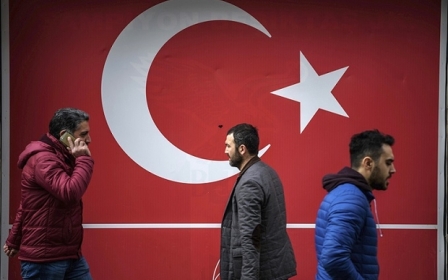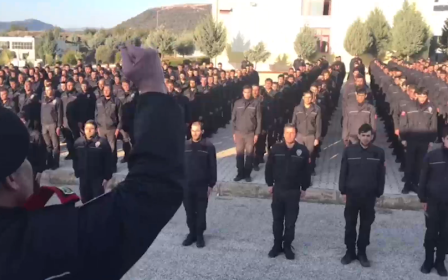More than 5,000 Turks filed compaints at European court over coup-related purge

More than 5,300 Turks have filed complaints before the European Court of Human Rights over their government's purge following a failed coup last July, the president of the court said on Thursday.
The cases filed by Turkish nationals in connection with the post-putsch crackdown constituted over 10 percent of all the claims filed before the court in 2016, Guido Raimondi told reporters in Strasbourg, where the court is based.
Another 2,945 cases also filed by Turks last year, but not in connection with the coup purge, brought the total number of complaints from the nation to over 8,308. That figure was four times higher than in 2015.
Some 120,000 people have been suspended or dismissed in the aftermath of the bid to overthrow President Recep Tayyip Erdogan on 15 July, but thousands of posts have been restored.
Within the first week of the New Year, Turkey dismissed more than 6,000 police, civil servants and academics.
The government issued a decree that ordered the dismissal of 2,687 police officers, 1,699 officials from the justice ministry, 838 from the health ministry, more than 630 academics and 135 officials from the religious affairs directorate.
But the arrests have seen not just military officers targeted, but also journalists, academics, activists and others.
Last week Erdogan said some 43,000 people had been arrested over suspected links to US-based Muslim preacher Fethullah Gulen, whose followers the authorities have blamed for the attempted coup.
Relations between the EU and the NATO member state have soured in the past year over human rights and freedom of speech issues.
Only now the first trials in relation to the failed coup are getting underway in the biggest legal process in the country's history.
A court in the eastern city of Erzurum on 5 January sentenced two army officers to life in jail over their roles in the putsch, the first verdicts to be handed out.
Raimondi on Thursday urged plaintiffs to take their cases before their national tribunals before resorting to the European Court of Human Rights.
"It is good to let the Turkish authorities do their job," the Italian magistrate said.
Should the Turkish constitutional court block the claims, there is a risk the European court will become "submerged by tens of thousands of cases", he added.
Raimondi meanwhile described Ankara's decision to set up a special committee to hear complaints connected to the state of emergency as "very encouraging".
New MEE newsletter: Jerusalem Dispatch
Sign up to get the latest insights and analysis on Israel-Palestine, alongside Turkey Unpacked and other MEE newsletters
Middle East Eye delivers independent and unrivalled coverage and analysis of the Middle East, North Africa and beyond. To learn more about republishing this content and the associated fees, please fill out this form. More about MEE can be found here.




